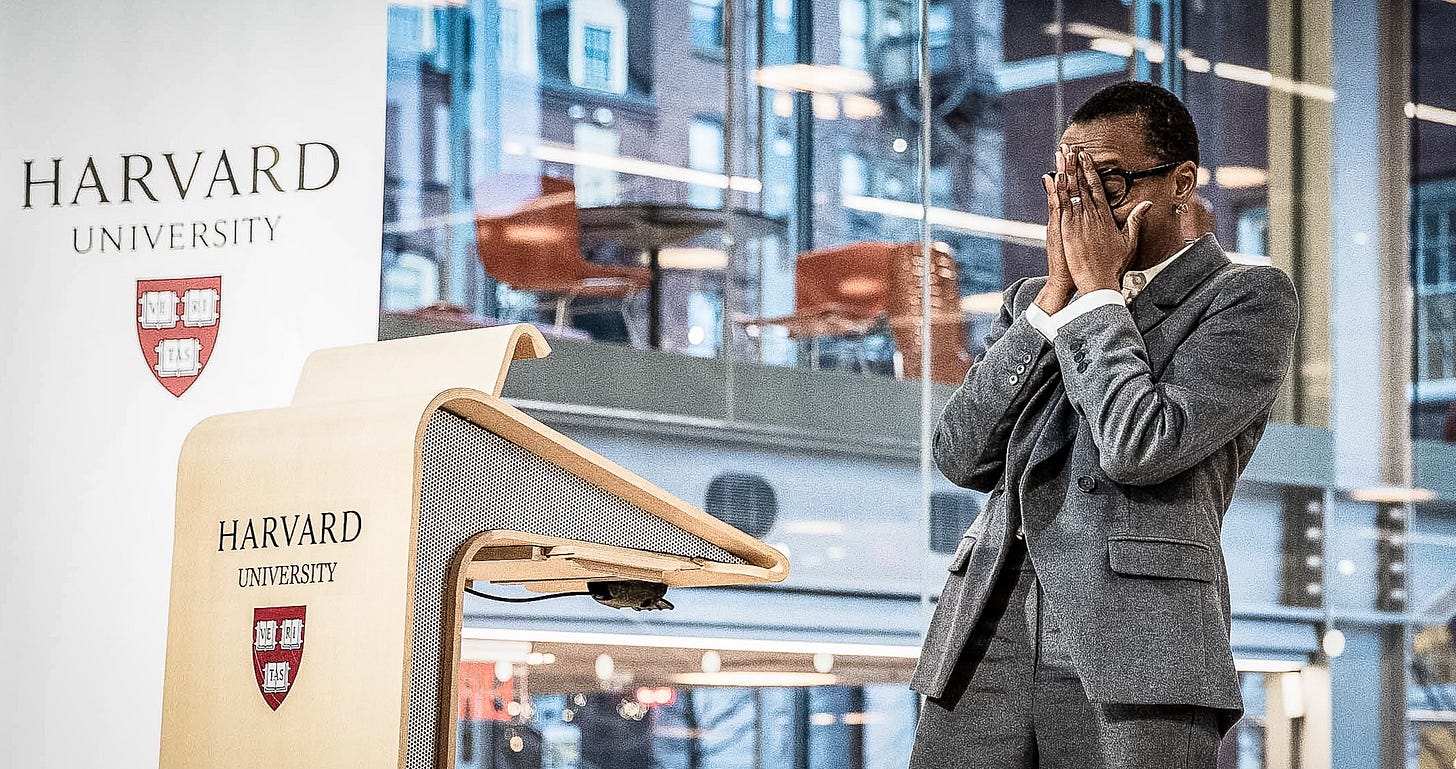Class War Behind Harvard’s Embrace Of DEI Race Pseudoscience
Plagiarism, the resignation of Claudine Gay, and the need for higher ed alternatives

Few institutions are more committed to attracting, promoting, and retaining the best scholars in the world than Harvard University. Many professors make $800,000 per year or more in salary. The professor who teaches the introductory class to Computer Science earned $1.5 million last year.
Harvard also offers its scholars and staff housing on University land at a cost 20% below fair market value, $20,000 per year in childcare subsidies for parents, and money to build whole academic programs. In 1991, Henry Louis Gates Jr. left Duke University for Harvard after it gave him the opportunity to create an African and African American Studies Department and hire Cornel West and William Julius Wilson.
When Harvard loses famous professors, such as historian Niall Ferguson, it is to other top schools, like Stanford, where they don’t have to teach. “When we hear about somebody that’s being recruited by another institution,” said one Harvard dean, “we talk to them. What’s going on in your life? How can we make your life here even better?”
And yet that commitment to excellent scholarship was nowhere to be found in Harvard’s selection of Claudine Gay as president last year. Gay resigned today in the wake of revelations that she had repeatedly plagiarized the work of others. Gay had survived an organized effort by Harvard alumnus Bill Ackman and others to remove her following a debate over what speech related to the Israel-Hamas war should be allowed and what should be censored. But she could not survive the evidence of plagiarism. Aaron Sibarium at the Washington Free Beacon reported on six new pieces of evidence of plagiarism yesterday.
Gay’s plagiarism is one indication among others that she had a lackluster record. Gay published no books and just 17 published works in her career. Last week, a journalist at Substack reported that after two professors questioned a method she used in a 2001 paper because of its “logical inconsistencies,” Gay refused to share her data with them. Gay’s academic record is far below Harvard’s normal standards for both professors and presidents. Former Harvard President Drew Gilpin Faust (2007 - 2018) is the author of multiple award-winning history books. Derek Bok (1971 - 1991) was one of the most influential voices on higher education. And James Conant (1933-1953) did breakthrough chemistry before becoming a top science policy advisor to presidents Roosevelt, Truman, and Eisenhower.
It’s reasonable to wonder how much any of this matters. Gay has resigned. All institutions make bad decisions. Harvard is just one of 2,520 four-year universities in the United States. It has just 1,666 students in its freshman class. And yet the scandal swirling around Harvard’s Gay has been national and even international news for nearly a full month.
Fortunately or unfortunately, Harvard matters a lot. Its influence remains unparalleled, both in the United States and around the world. Some of America’s most influential presidents, including Barack Obama, George W. Bush, John F. Kennedy, Franklin Delano Roosevelt, Teddy Roosevelt, and John Adams, attended the university. So too did Mark Zuckerberg, Bill Gates, Ruth Bader Ginsberg, Michael Bloomberg, Neil deGrasse Tyson, Robert Oppenheimer, and Helen Keller. It is an engine of innovation responsible, in whole or in part, for the smallpox vaccine, anesthesia, insulin, corrective heart surgery, DNA sequencing, artificial skin, liver transplant surgery, and other discoveries.
And it’s not just that Gay’s academic record was lackluster. Much of her career at Harvard consisted of pushing what can be accurately characterized as race pseudoscience on the faculty and persecuting one of the greatest and most influential economists, Roland Fryer, who happens to be black.





